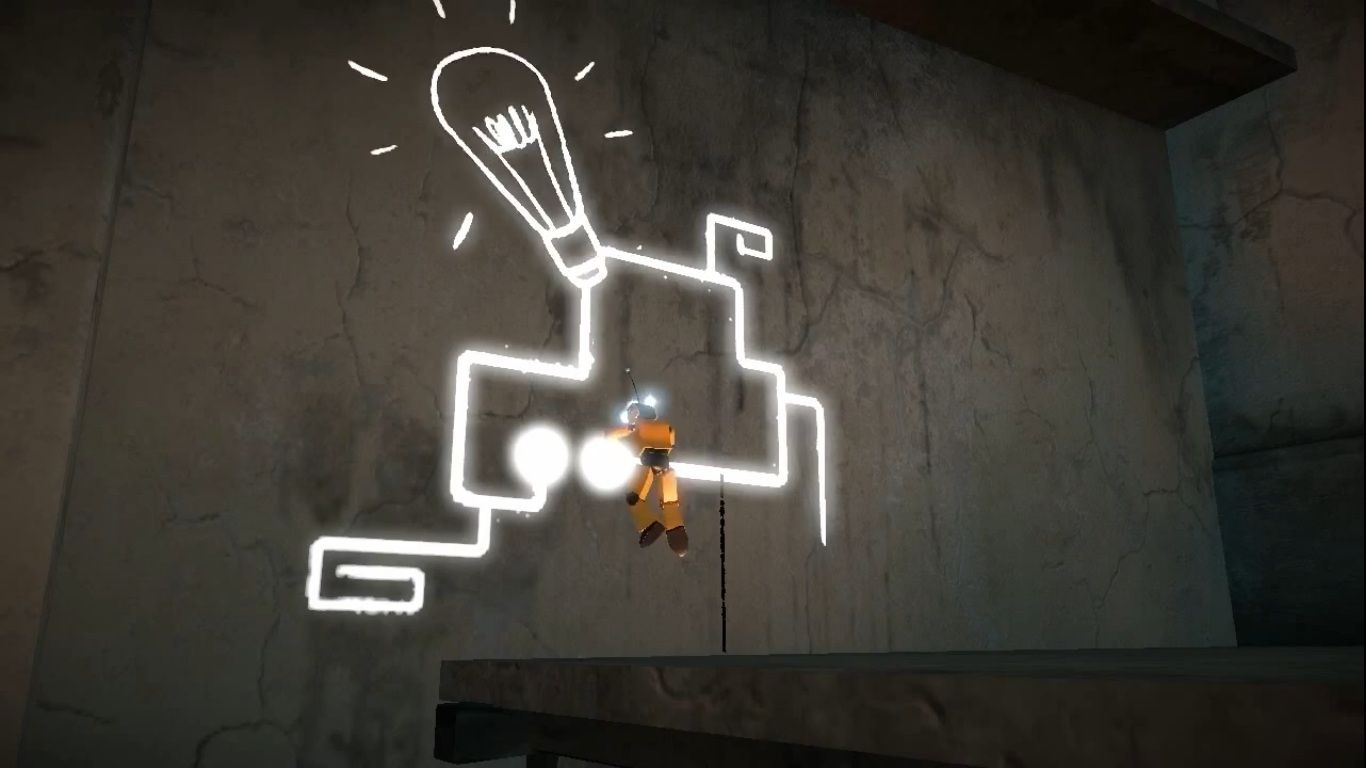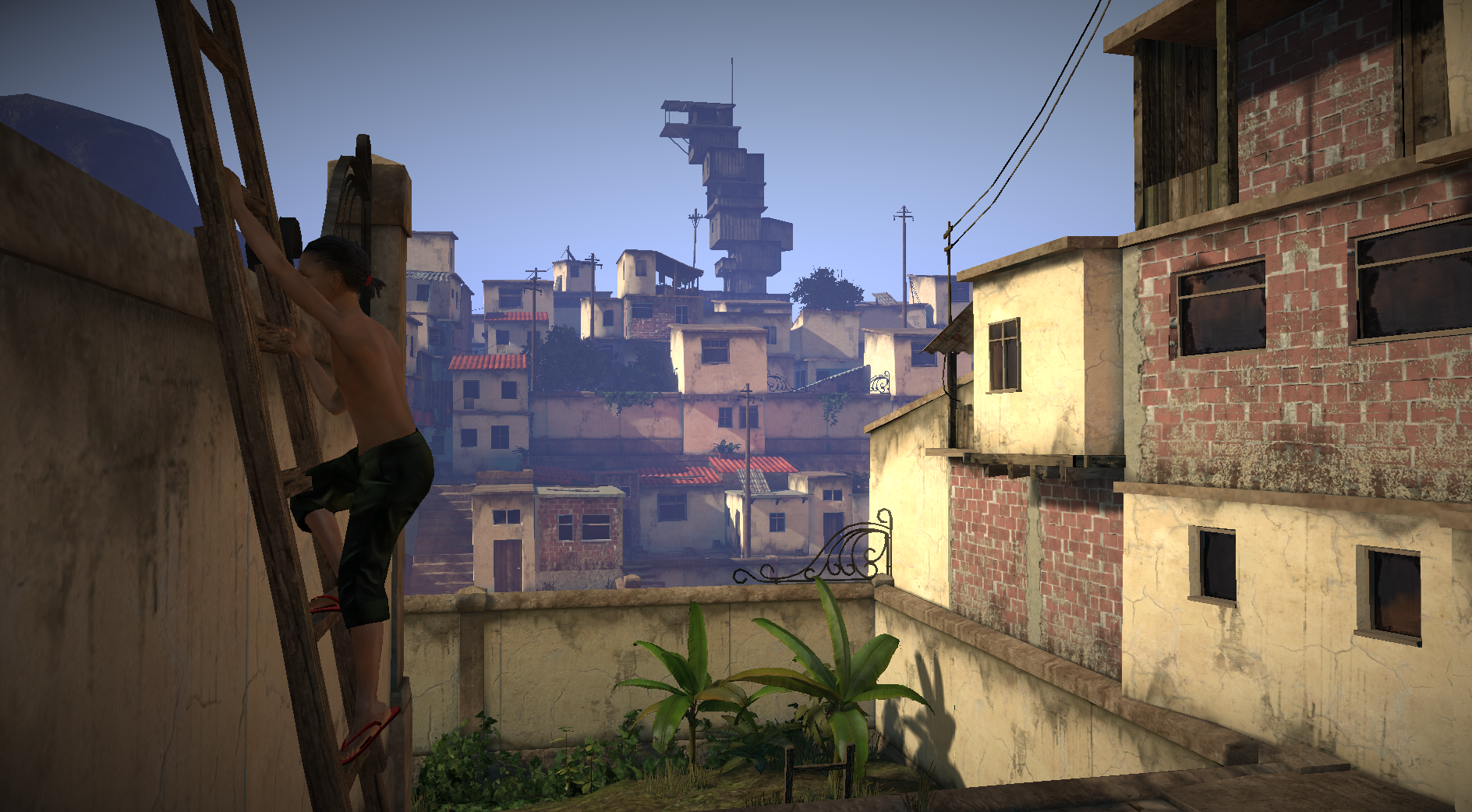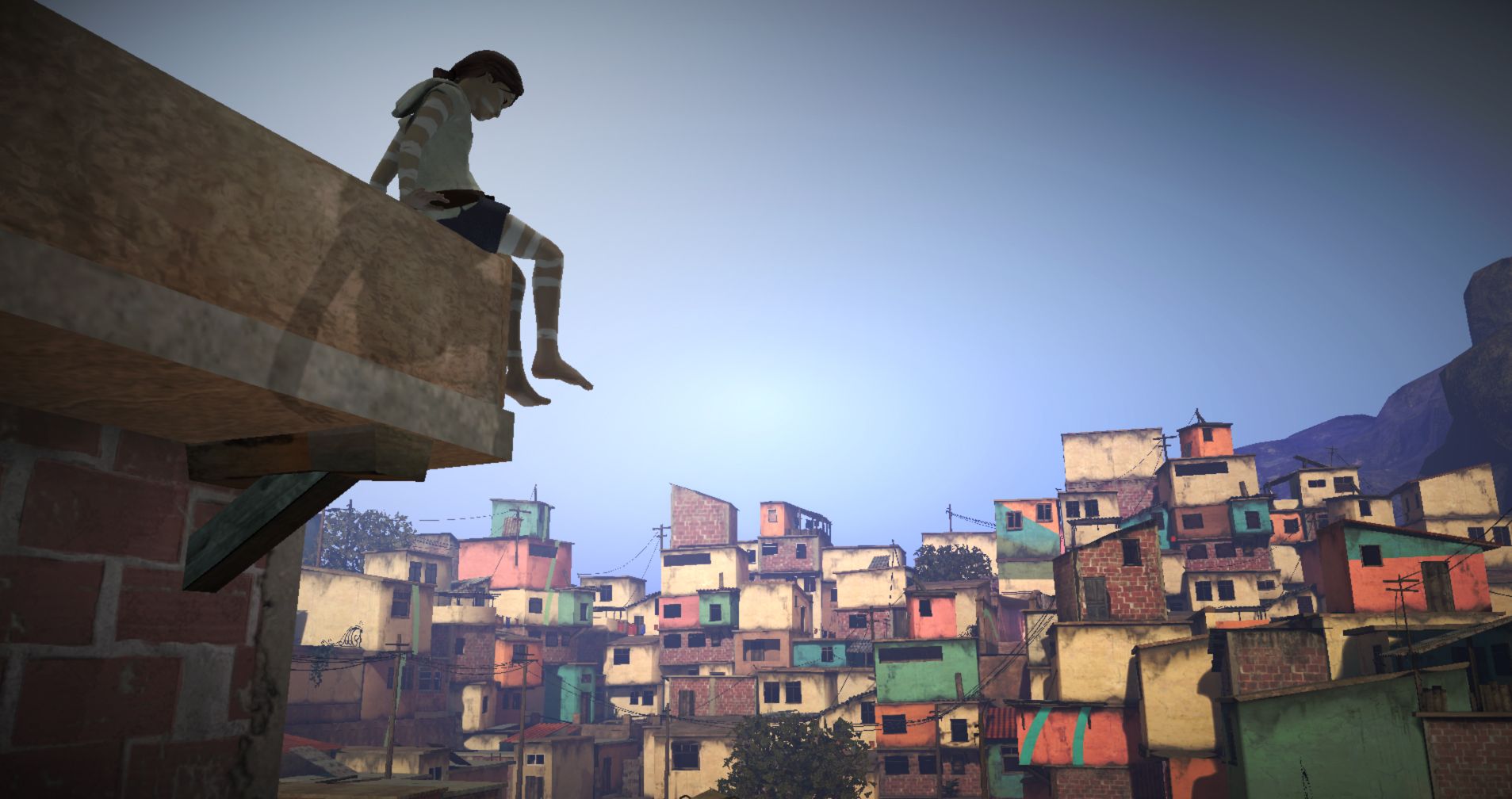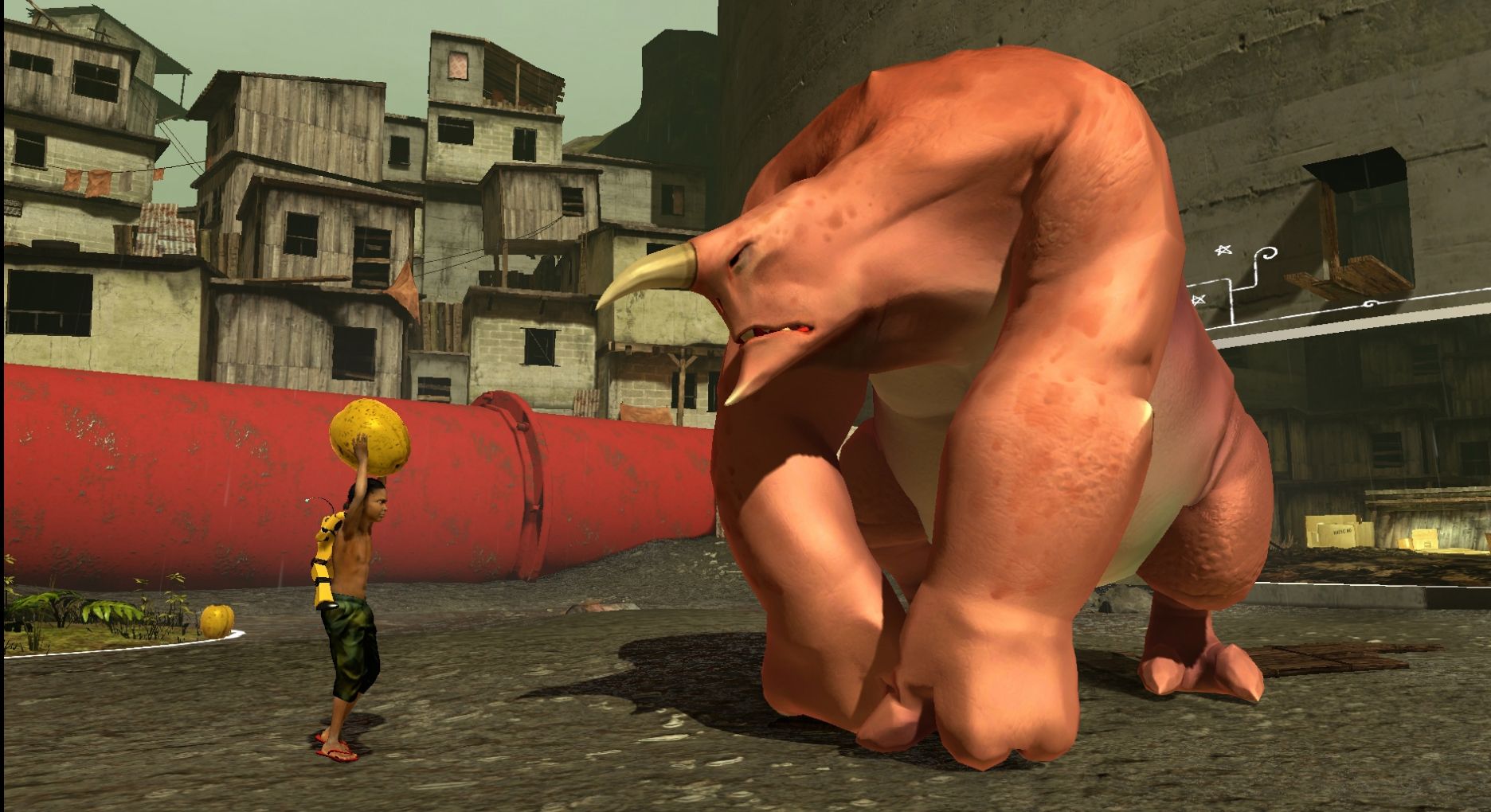At GDC earlier this month I had a chance to speak with Papo & Yo creator Vander Caballero. As he walked me through a demo I commented several times on how the soundtrack complimented the gameplay; the ambient score threading through the game is bright and clear, growing more complex as puzzles are solved and celebrating my triumphs with chimes and clicks. Caballero put me in touch with Brian D'Oliveira, founder of studio La Hacienda Creative and artistic power behind the music of Papo & Yo.
D'Oliveira grew up poor in South America. At his mother's encouragement to pursue a musical career, he taught himself to play various instruments, eagerly taking up anything he could get his hands on. His own childhood experiences factor largely into the ambiance of Papo & Yo, weaving seamlessly into the game's encompassing narrative.
"A lot of the settings in the game, I grew up in places very similar to that. It's really close to home," D'Oliveira told me. "When I saw this game.. I mean it's funny, [Vander and I] were like, 'Yeah let's work together!' The game hadn't quite formed itself yet back then. And then when it did I was like, 'Oh my god! This is me!'"
D'Oliveira plays what can only be described as tons of instruments, and is the owner of an impressive collection. When I spoke with Caballero, he described a room which D'Oliveira had filled with instruments, many of them unnameable, foreign and rare. "When I was a kid I didn't have any instruments or toys, so I basically made my own," D'Oliveira said. "I never had enough toys, and now that I'm an adult and I'm playing instruments... well, they're instruments but they're also my toys. I'm an adult, I can do whatever I want now!"
"Sometimes I'll order [these instruments] from exotic places, or I'll get people to make them for me. The whole thing for me is it's like collecting sonic powers; each instrument has its own life. For me it's an obsession where I can actually create something out of nothing and blend together all these different sounds," he said. "Almost everything you hear in the game, every song and sound, is played live."
"I like to touch my sounds," he added with a chuckle. "You may hear a lot of processing, but when it comes down to it, it's all played live. I play almost all the parts, on over 20 different instruments."
As I played the demo for Papo & Yo, there were sounds I couldn't put an instrument too. The soundtrack is vivid and surreal, a tangible part of Quico's imagination. A symphony of foreign sounds bring together the experience of wading through a child's imagination. "I tried to create a language," said D'Oliveira, "something that feels familiar internally, something that resonates with your emotions. Something sonic and just as exotic and magical as the game."
"My main inspiration was my childhood. To me, I'm basically putting a soundtrack to what happened in my head when I was a kid. Vander left it so open for me, he just said, 'Do what you do -- you're part of this as well. I trust you.' He let me take over the music, and lets me do what I do. I do all the soundscapes, and a lot of the magical effects are all instruments as well."
The soundtrack is comforting. There is a world of difference between hearing a sound made by a live instrument and one produced by a synthesizer, and Papo & Yo is studded with this bright, clear sounds. As the player moves closer to solving a puzzle, more instruments are piled onto an already upbeat tune. The result is not a muddled cacophony of synthetic noise, as is common with MIDI produced soundtracks -- instead the player is swaddled in a score that is very much alive, growing alongside the sense of accomplishment upon a puzzle's completion. "It's not one piece or a couple pieces, it's a lot of layers. According to what Quico is doing, it changes. It's never the same, there is randomization in what instruments are added," said D'Oliveira.
Papo & Yo is a deeply personal game, guided by Caballero's childhood with his alcoholic father. Despite the game's foundations in Caballero's story, D'Oliveria has been given freedom to meld his own into its production and full jurisdiction over the soundtrack. "He's letting me tell my story too," he said with a grin. "That's the vibe [Minority Media] has created. They're really nice people and it's enjoyable. People throw out their own ideas and [Caballero] leaves it open-ended so we can work. He's a creative mastermind: he knows how to get the right elements and the right people and just let them play, let them do their thing."
"Vander told me the storyline in a meeting, and even then I already started obsessing. I wanted to get the craziest, most exotic stuff to create a tool set, a language, that would make the game speak."
"When you empower people creatively and make them assume that responsibility, it's no longer a question of, 'Will [the boss] be happy with this?' Instead it's, 'Am I happy with this?' It's all on you."
D'Oliveira has composed for film and television, but swears it's nothing like composing for video games. "It's the first commercial-based project for me, but the one in which I have been most able to express myself as an artist. It's the first time I've been able to express who I am. I've been doing interactive material, but more web based and very simple. This is the first time I can actually take it very deeply and I love it. I'm composing within the game engine. I'm doing all the game arrangements. It's not just linear. There's so much to play with -- not just sonically, with sounds, but arranging it to affect the mood and hinge on what the player does."
"I want people to play Papo & Yo and feel like they have had an experience, a real experience, a connection," he said, hopeful for the game's takeaway. "I want them to feel part of it as well. There's a lot of life in the game. There's an energy, and I want players to take away a bit of that energy. You feel that you're in this imaginary, beautiful world. "
On the heated topic of video games and art, D'Oliveira, like Caballero, sees great potential for the medium to produce resonating emotional experiences. "It's the first time I get to be honest with my composing. Honesty is important for creativity. A lot of people do stuff, but what are you really saying? It is art, and that threshold comes into art when you are being honest with your expression," he concluded.
Papo & Yo will released later this year a PlayStation Network exclusive.




